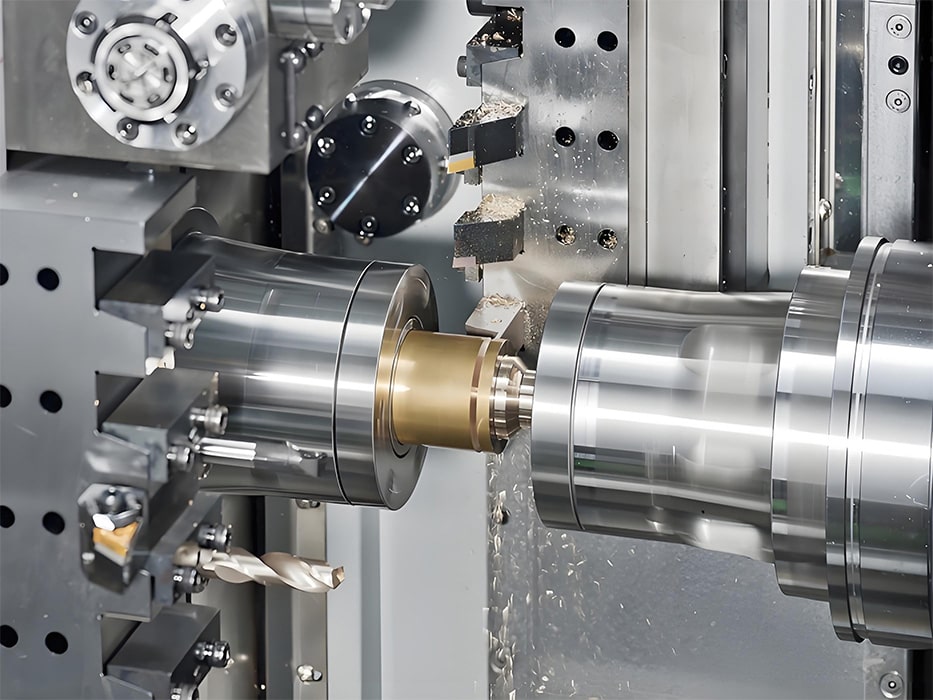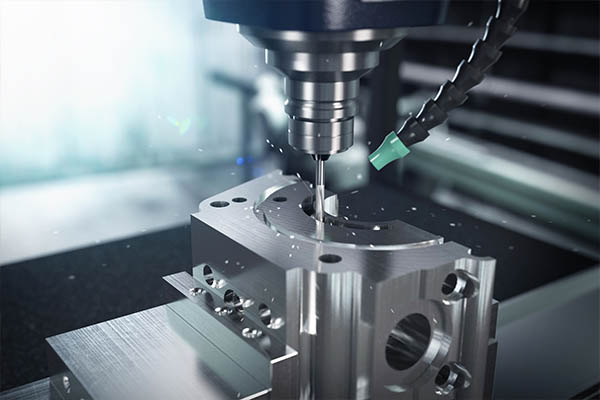CNC Machining: Revolutionizing Manufacturing with Precision and Efficiency
CNC Machining: Revolutionizing Manufacturing with Precision and Efficiency
Blog Article
CNC machining has revolutionized the manufacturing industry, providing a precise and efficient method for producing components and parts across a wide array of industries. This cutting-edge technology utilizes computers to control machinery that performs cutting, drilling, milling, and many other actions on material types like metals plastics and wood. The level of precision achieved by CNC cutting is unmatched that allows intricate designs to be carried out at a high level of accuracy. By replacing manual intervention by automation, CNC machines have significantly reduced the possibility of human errors and have increased productivity. This blend of precision and efficiency has made CNC the machining process a crucial element of manufacturing today.
One of the main advantages of CNC machines is their ability to create complex and intricate components with extreme precision. Contrary to manual machining where precision is largely dependent on the ability of the worker CNC machines execute programmed instructions with exactness. Digital instructions, typically made with CAD (Computer-Aided Design) software, allow producers to make parts with accuracy as close as small amount of microns. The level of accuracy is critical in industries such as medical device and aerospace manufacturing where one tiny deviation could compromise the safety or performance of a product. By using CNC machines, makers are able to ensure that each part meets exact specifications, reducing the chance of defects, and the necessity of costly repair.
In addition to its precision, CNC machining is also known for its efficiency as well as its cost-effectiveness. Traditional methods of machining typically need skilled workers to manually modify and operate the machines, which can be time-consuming and expensive. CNC machines eliminate a large portion of the manual labor required in production because machines run completely autonomously over long time periods after they have been set up. This enables manufacturers to improve production without needing the need to increase their labor or resources. Additionally CNC machines can be capable of performing several operations in a single setup and thereby reducing the necessity for repositioning and part transfers this saves time and decreases the possibility of mistakes. Automating results in shorter production processes and lower prices per part, making CNC machining an attractive option for businesses trying to optimize their manufacturing processes.
CNC machining's versatility is another reason why it is now the foundation of manufacturing today. It can work in conjunction with an array of different materials, ranging from tough metals such as stainless steel to softer wood and plastics. The CNC machining technology is suitable for the production of parts in a variety of industries, including automotive, aerospace, electronic and medical consumer products. Furthermore, CNC machines can perform a range of operations, including cutting, milling, engraving, drilling, or 3D contouring inside a single set-up. This versatility eliminates the necessity to use multiple machines or part transfers, thereby increasing the effectiveness. When it comes to making prototypes or producing large batches of component parts, CNC machining offers the ability to accommodate a variety of requirements for production. To acquire extra details kindly go to https://www.premiumparts.com/services/cnc-machining
One of the challenges associated with CNC machine machining is the initial setup cost. Making investments in CNC machinery and the software needed to run it can be expensive, particularly for small-sized businesses. However, the long-term benefits of CNC machining--such as reduced expenses for labor, enhanced production effectiveness, and improved production quality often outweigh any cost of the initial investment. In addition, many firms provide CNC machine-making services to companies that may not have the resources to make the investment in their equipment, allowing smaller manufacturers to profit from this technologies without having to pay upfront. If the demand for CNC machining continues to grow and the price of machines as well as software is likely to fall, making it affordable to all kinds of enterprises.
It is predicted that the future for CNC machine machining is exciting, as technological advancements continue pushing the boundaries of what the machines are able to attain. With CNC machines becoming more advanced, they're increasingly integrated with other technologies including 3D printing as well as robotics creating hybrid manufacturing methods which combine the advantages of different techniques. In addition, the growth of smart manufacturing and technological advancements like Industrial Internet of Things (IIoT) is enabling greater connection and automatization in CNC machining. It allows machines to talk with one other and adjust operations at a real-time rate based on sensor data. As new technologies continue to develop, CNC machining will remain a vital tool in the evolution of modern manufacturing, providing even greater precision as well as speed and flexibility in the future of manufacturing.